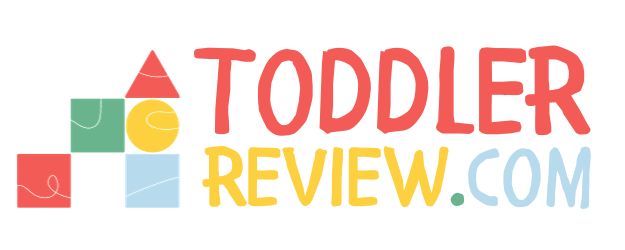We all dream of raising a child who loves reading. Most parents have fond memories of their favourite children’s books. Reading with your child is a great way to bond and pass on cherished stores.
Reading can help our children in so many ways – from their education to help with speech and language development. A love of reading is a life skill that will help your child navigate through life.
Here we look at different ways you can bring in the love of reading with your children and give you more tips to help develop a love of reading.
Why is it important to read to your baby?
Your baby will love hearing your voice, recognising patterns and sounds as you speak. This time will also encourage your baby to look at the book – picture books and board books are ideal for this time. This can help your early reader develop social development and language skills.
As your baby grows, they can look at baby books with tactile pages – where toddlers can touch, stroke and turn material and pages within the book. This all helps develop motor skills and encourages vocabulary skills.
Older siblings may enjoy helping by sharing kids books, particularly for bedtime reading which is a perfect opportunity to bond with new members of the family.
Reading to your baby.
It’s never too early to start reading to your baby. You can start reading to your baby right from the early days. Your baby will love to hear your voice as you read to them. This offers a perfect bonding time with your newborn and helps stimulate cognitive development for your little one.
Your baby doesn’t need to understand the books you read but will benefit from hearing the expression in your voice. Reading to your baby offers the perfect relaxation period for book lovers.
You should even be encouraged to read to your baby before they are born as a babies ears are one of the earlier part to be developed in the womb.
How to encourage early readers.
Keep reading to your toddler, those first few words you read will help in so many ways. Reading aloud can help your child develop language skills and have a broad vocabulary. The content of books also aids social development and emotional understanding – from expected behaviour, learning about dangers and everyday social situations.
Picture books are perfect for this as you can encourage your early reader to talk about the pictures as well as following the stories. Some of our best advice is to leave some colourful picture books on your coffee table to encourage your young ones to become a book lover. Or talk to other parents about the books they use.
If too many words in a book are off-putting try graphic novels that may help new readers to follow a storyline and talk about the characters illustrated.
Share your love of books.
Model your desired behaviour by showing your children how much you love books. Let them see you read. Spend time with screens off, and read your favourite books or magazine at home.
Don’t keep books just for your bedroom, have a book corner in your living space, or a shelf with colour interchangeable books to encourage your reluctant reader. And don’t limit yourself to fiction books, you can have non-fiction – from historical books – think Vikings and Dinosaurs, to children’s cooking, gardening and sports books.
Visit book shops together and let your child pick a book they want to read. Some bookshops will let you sit and read the book in-store – this all helps encourage independent reading.
Let younger siblings help choose and read books for you to read.
Create your own family book club.
Ensure you have a good selection of reading material – from chapter books, historical fiction, and the odd board book or two. Most kids will enjoy selecting their own book. Most parents enjoy reading so you could incorporate a star chart or a book discussion evening before bed. Keep it light-hearted, children learn when they are happy their ideas are encouraged. Is there anything they would have changed in the book? Is there a picture book they would love to see?
Use Your Local Library
Many local libraries offer baby reading times to encourage a child’s love of books- often where you can meet other parents and sing nursery rhymes and read baby books together. This is a great way to
Your preschooler may also be given their first library card. Your local library will probably have a storytime session that your first child will love. These storytime sessions are ideal from when your child is just a few months old to 1-2 years old. You may be surprised at how vibrant your library is these days – your child can also rent out board games, DVDs and join a book club. Perfect for enticing a reluctant reader.
Books for toddlers.
Toddlers will love books they can point to, touch, feel and squish. These books will all help your child develop their fine motor skills (finger and hand movements), and books that have flaps, pages to turn and lift will all encourage participation. There are many soft cloth books and board books for this age group.
Reading to 2-3 year olds.
With this age group your budding book lover will start to enjoy the familiarity of characters and a basic understanding of plots. You can start to point at particular words in the book to help increase awareness, ask your child simple questions about the characters to check comprehension. It’s a great age to encourage non-fiction books too, such as young encyclopedias and fact books about animals, plants and space.
Reading with older kids.
Reading with your child can help them develop an understanding of the world around them. Right from the early days, you will be teaching your child about colours, animals, people’s jobs, social behaviour such as sharing and good manners. Reading aloud to your young readers can help them talk about everyday situations – from starting school to having a new baby, getting a first pet, or going on holiday.
You young readers can learn about empathy, problem sharing, and friendships. A story can help you perceive a situation from another’s point of view and develop an understanding of how we behave.
Look beyond the book.
Take a few minutes to look at the publication of the book. Younger school-age children may like to read the ‘blurb’ on the back of the book or see who the author and illustrator are. When was the book published? What country was it published in? Asking these questions can help an inquisitive mind.
Re-visit their favourites.
Re-reading your child’s favourite storybooks helps with comprehension skills. The familiarity of the story can also help encourage reluctant readers as they become more confident with pronunciation and thus develop their reading skills as your child learns.
Rhyming books are particularly good for this as your child will learn to predict the pattern and sound of the words. There are plenty of fun poems and joke books available to encourage a reluctant reader.
There are lots of board books that you can keep to hand too – in your buggy, nappy bag and car.
Give kids freedom to choose their books.
Most parents know that children prefer to choose their own books. Try to have a good selection of books from at home that they can choose from. Older children love the independence of choosing books through their library or school book club magazine. From chapter books to Harry Potter, your youngster will soon be practicing their reading skills without knowing. If your child is more of a visual reader, encourage them to choose comics or annuals. If your child is more of a visual learner they will enjoy books with graphs, infographics and bright guides to help with reading.
Don’t be afraid to make mistakes.
Let your little one read and interpret the story their way. Don’t keep correcting them if they make mistakes with pronunciation or the speed of their reading. Most children will enjoy the bonding time and the fact that you are listening; this will help build confidence. If your child has a younger brother or sister, let them read to them. This will help you and allow your children to spend some quality time together. Put on silly accents and voices when you read.
Don’t force your child to read.
A kid’s love for books should come naturally. If kids learn to enjoy reading they can open up so many more opportunities – from being able to confidently read their work at school, understanding exam questions, completing job applications in later life. The more words your kid knows, the better chances they have.
Children are sometimes given reading as a punishment – ‘they must read every day’. We feel it is better to let your child enjoy reading – it could be funny poems, a joke book, a classic chapter book such as Charlie and The Chocolate Factory or even a magazine. It’s all reading.
If your child doesn’t feel like reading some days, then instead talk about the characters, storyline, or author. Talk about what makes a great story. And what makes a great ending. Your child will read a book when they are ready.
Do let your child read to you.
Some great advice is to encourage your child to read a book to you. This can also help reduce screen time for your child. Your child will learn new words as they read to you, perhaps snuggled in the living room spending time together.
Let your children read to you without interrupting them, allow their confidence to grow. A child loves to have your attention as you listen to them.
You can help your kids if they ask you for help regarding any particular word but just let them go with the flow of reading. This will increase their confidence in reading on their own. Whether they read to you or you read to them, keep the reading time short and interesting.
Do show kids how to enjoy books.
Many children will enjoy watching films and the corresponding books. Even from a young age you can introduce your child to films and books such as the Julia Donaldson books, Disney films – Sleeping Beauty to The Jungle Book – and superheroes. All will offer an opportunity for great conversations and encourage your kid to love reading.
Do encourage audiobooks – they’re still books.
Audiobooks can also be used to help your child read independently. Listening to audiobooks can help a child understand and develop expression and pronunciation, speed, and suspense.
They could read along with the book, or become familiar with the story by listening to an audiobook at bedtime or in the car with other kids. Your child will soon have a beloved author before you know it.

